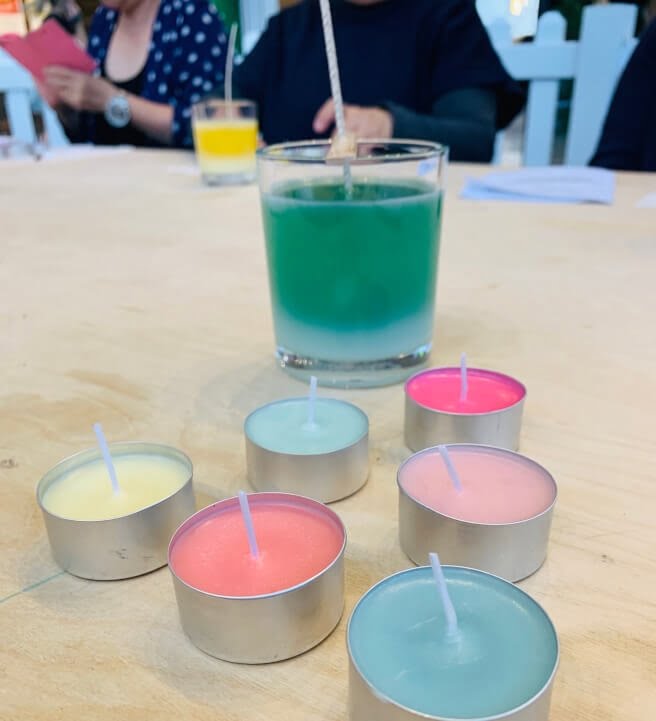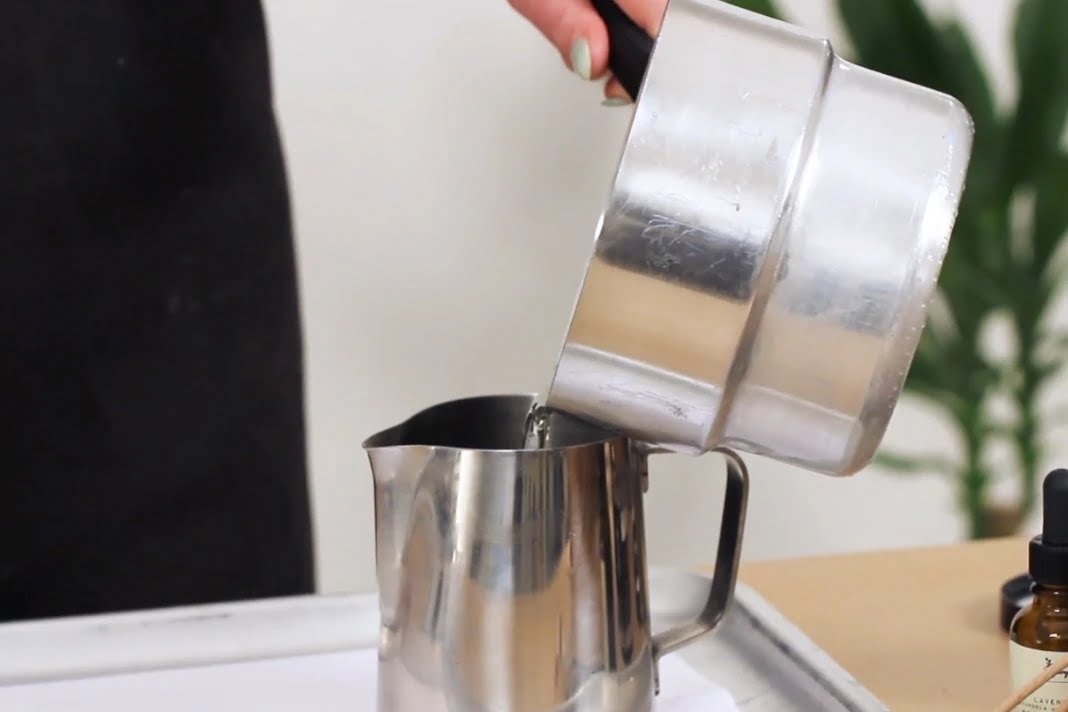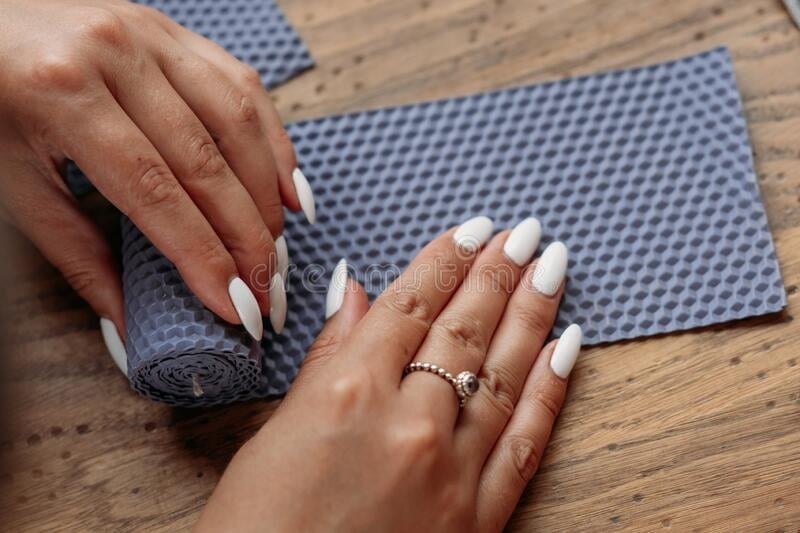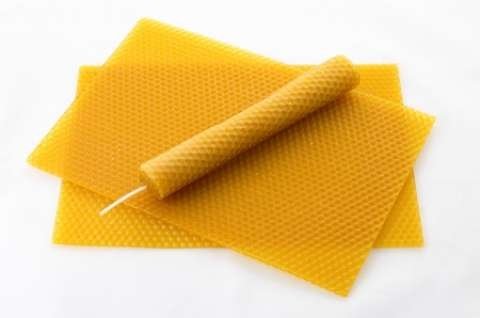Introduction
Making hand-dipped beeswax candles is a craft that has been performed for centuries, with records dating back to the Ancient Egyptians in 2450 BC. In Ancient Greece, beeswax candles were used for public functions and by religious organizations and Aristocrats. Eventually, churches began using beeswax exclusively because of its longer burning times and light production compared to other candles made from animal fat or tallow. During the Middle Ages, as other sources of fuel became more readily available, the popularity waned somewhat yet interestingly, Britain still required its first parliament house in 1275 CE to be lit with at least 100 candles on special occasions. In more recent years, the reduced interest for beeswax has reversed due to the resurgence of the need for bee-friendly products and sustainable methods of production since bees are an essential part of our ecosystem and our food cycle. Nowadays, more people are interested in Beeswax Candles than ever before due in part to their sustainable production as well as their beautiful scent and natural coloring which makes them popular decorative objects even when they are not lit.
Materials Needed
Making hand dipped beeswax candles requires a few materials that are available from most craft stores. Most notably, beeswax, wicks, and wick holders. The recommended wax is 100 percent pure, unbleached beeswax pellets or blocks. The best way to purchase the wicks and holders is in an all-in-one kit specifically designed for candle making. These kits often come with an instructional guide that can provide invaluable tips to successfully make the candles. It is also important to have some sort of container for melting the wax, as well as a pair of tongs for removing the finished candles from their molds. In terms of additional supplies, you may want to consider a thermometer (preferably candy/deep fry type) because too much heat can cause shrinkage or melting away of detail. Finally, it is necessary to have molds in which to dip the candles and form them in any desired shape or size. Molds range from tin or ceramic containers to elaborate carved shapes made out of wood or metal.
Melting Beeswax
To melt beeswax, set the stove to a low temperature – around 250 F. Make sure that the burner is on the lowest setting possible and keep an eye on the wax as it melts. The entire process should take between 15-30 minutes. For safety, use a double boiler set-up – put some water into a pot and place another pot over it to prevent the wax from being directly heated. Once the beeswax has melted completely, it’s ready for dipping.
Dipping the Wicks
To coat the wicks with wax, start by attaching the wick to a holder or a stick. Make sure that the wicks aren’t tangled together and that they are firmly secured. Then measure out the desired amount of wax and place it into a double boiler or in a heat-proof bowl over a saucepan of boiling water. Heat the wax for about 30 minutes so that it melts completely.
Then slowly lower each wick into the melted wax, moving them around to ensure that each are coated evenly with wax. It is important that each of the wick strands be submerged with enough excess length at the top before removing from the pot, as this will form your candle’s core and determine its size. Allow moments for air bubbles trapped in between strands of wicks to float up to the surface before carefully removing an arm-length cluster from the heat source.
Place this on some parchment paper or newspaper and spread out with tweezers to separate if needed until you have reached your desired width or shape. You can dip a few clusters at once depending on how much wax you have melted and how many candles you would like to make at one time.
Finishing the Candles
Scenting the Candles – Essential oils can be used to scent beeswax candles by adding a few drops of the essential oil of choice to melted wax before it is poured into the candle holder. Alternatively, powdered herbs and spices can be combined with beeswax either before or after melting. Popular scents for beeswax candles include lavender, rosemary, lemongrass, and chamomile.
Coloring the Candles – To create different colors for handmade beeswax candles, add crayons, pastels or block beeswax in hues of color such as yellow, red or blue. For a multi-hued design, use several colors of wax that have been mixed together prior to melting. Another way to create marbled textures is by dripping different colored molten waxes onto each other while they are still hot and liquid.
Display the Candles
When displaying hand dipped beeswax candles, it can be fun to play with both color and scent. Try to create a pleasing balance in the display by grouping candles together using the same scent and colors or by mixing different colors and scents as desired. If the display is for a store or showroom, consider hooks with sliding rings that make it easy to change the appearance of your shelves quickly without having to physically move each edible candle. To create attractive arrangements, experiment by grabbing random pieces from your collection and organizing them in sets of three or four. For an eye-catching touch, add some glue dots or other small adhesive discs to hold each item together more securely. Finally, don’t forget to add labels so customers can learn more about each product you have on offer.
Conclusion
When making hand dipped beeswax candles, you can use your own creativity and craftsmanship to create beautiful handmade gifts or unique accent pieces for any home decor. Not only that, but beeswax candles are incredibly versatile. Whether you’re looking to create the perfect ambiance in a living room, or add a subtle glow to a bedroom, making hand dipped beeswax candles is an excellent way to do it. You can also add decorative features such as dried flowers and ornamental fragrances to make them even more special. Moreover, if you decide to package your candles in gift boxes with personalized cards, this will surely make for memorable gifts for family and friends. So no matter the occasion or home project, creating hand dipped beeswax candles is a great way of expressing yourself through artful craftsmanship while adding something special to your space at the same time.

Welcome to my candle making blog! In this blog, I will be sharing my tips and tricks for making candles. I will also be sharing some of my favorite recipes.





